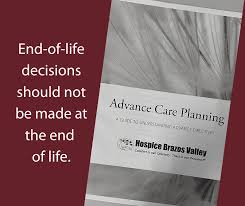
Hospice volunteers can volunteer in many ways. Vigil volunteers spend time with dying patients and make phone calls to their families. Administrative volunteers help with office tasks behind the scenes. Bereavement volunteer are those who make phone calls to grieving family members. You can find out more about each type of volunteer by reading the following. These opportunities are not the only ones hospices have available. They also need volunteers to help with errands and address envelopes.
Bereavement volunteers phone families to comfort them
Volunteers in bereavement are often already serving as patient support volunteers. There are three types of training: in-home and telephone. Volunteers with prior experience will need to train for eight hours or 16 depending on the program. Volunteers contact families in their grief on a weekly or monthly schedule.

Administrative volunteers assist hospice staff
Hospice volunteers help hospice staff in many ways, including providing direct care to patients and caregivers. The hospice team is fortunate to have these volunteers as a resource. Volunteers often have a close relationship with patients. They help them with everyday tasks like writing letters or housekeeping. They might also be able to assist in the community, such as grief support group by taking care of mails and handling phone calls.
Volunteers for the Vigil spend time caring for dying patients
Vigil Hospice volunteers provide support for dying patients and their families. Although hospice staff are always available at the bedside of the dying patient, vigil volunteer support is provided for the loved ones and their friends. Vigil hospice volunteers learn how to be attentive to the needs and create a peaceful atmosphere. Molly and other volunteers get information about patients and their families. They also download books to be read aloud.
Bereavement volunteers visit patients
Hospice's Bereavement Program volunteers help patients and their loved ones cope with the loss. Volunteers are trained in hospice bereavement care, and they also participate in support groups and telephone calls. Volunteers can provide support and feedback during difficult times and help with memorial services. The bereavement mailings they send out can help families focus on their loved one's memory.

Volunteers who offer emotional support to bereavement victims
Bereavement volunteers are people with experience in grieving. They offer emotional support for patients and their families. They listen to their patients' concerns and help them access resources to help them deal with the loss. These volunteers are available for families to talk with in a relaxed setting. They offer time and space to help them deal with the loss. Many hospice bereavement volunteers act as bereavement facilitators to help other bereaved persons cope with the loss.
FAQ
What are the best ways to get free insurance for my health?
You can apply for free health insurance if you qualify. You might be eligible if you qualify for Medicaid, Medicare and CHIP.
Why do we need medical systems at all?
People in developing nations often do not have access to basic health care. Many people who live in these areas are affected by infectious diseases such as malaria and tuberculosis, which can lead to premature death.
Most people in developed countries have routine checkups. They also visit their general practitioners to treat minor ailments. But many people still suffer from chronic illnesses like diabetes and heart disease.
What impact will it have on the healthcare industry if there is no Medicare
Medicare is an entitlement program that provides financial assistance to low-income individuals and families who cannot afford their premiums. This program provides financial assistance to more than 40 million Americans.
Without this program, millions of Americans would lose coverage because some private insurers would stop offering policies to those with pre-existing conditions.
What are the various health care services available?
Patients should know that they can access quality healthcare at all times. Whether you need an urgent appointment or a routine check-up, we're here to help.
We offer many types and types of appointments. We also provide home care visits for those who live far from our clinic. We can also arrange for home care visits if you do not feel at ease in our office.
Our team includes pharmacists, dentists and other professionals committed to excellent patient service. Our goal is to make your visit as comfortable and painless possible.
Statistics
- About 14 percent of Americans have chronic kidney disease. (rasmussen.edu)
- The health share of the Gross domestic product (GDP) is expected to continue its upward trend, reaching 19.9 percent of GDP by 2025. (en.wikipedia.org)
- For the most part, that's true—over 80 percent of patients are over the age of 65. (rasmussen.edu)
- Over the first twenty-five years of this transformation, government contributions to healthcare expenditures have dropped from 36% to 15%, with the burden of managing this decrease falling largely on patients. (en.wikipedia.org)
- For instance, Chinese hospital charges tend toward 50% for drugs, another major percentage for equipment, and a small percentage for healthcare professional fees. (en.wikipedia.org)
External Links
How To
What is the Healthcare Industry Value Chain
The entire healthcare industry value-chain includes all activities related to providing healthcare services to patients. This includes the business processes within hospitals and clinics and the supply chains that connect them to other providers such as physicians, nurses, pharmacists, insurance companies, manufacturers, wholesalers, and distributors. The end result is a continuum, which begins with diagnosis and ends at discharge.
The value chain is made up of four major components:
-
Business Processes - These consist of the tasks performed by individuals throughout the entire process of delivering health care. For example, a doctor may perform an exam and then prescribe medication. Each step must always be done quickly and accurately.
-
Supply Chains – All organizations that ensure the right supplies reach the correct people at the right times. An average hospital has many suppliers. These include pharmacies, lab testing facilities and imaging centers.
-
Networked organizations - These entities must communicate with each other in order to coordinate. Hospitals often have several departments. Each one has its own phone number and office. Employees will be able to access a central point for information and updates in every department.
-
Information Technology Systems- IT is vital in ensuring smooth business processes. Without it things would quickly fall apart. IT also provides a platform for integrating new technologies into the system. A secure network connection can be used by doctors to connect electronic medical records to their workflow.